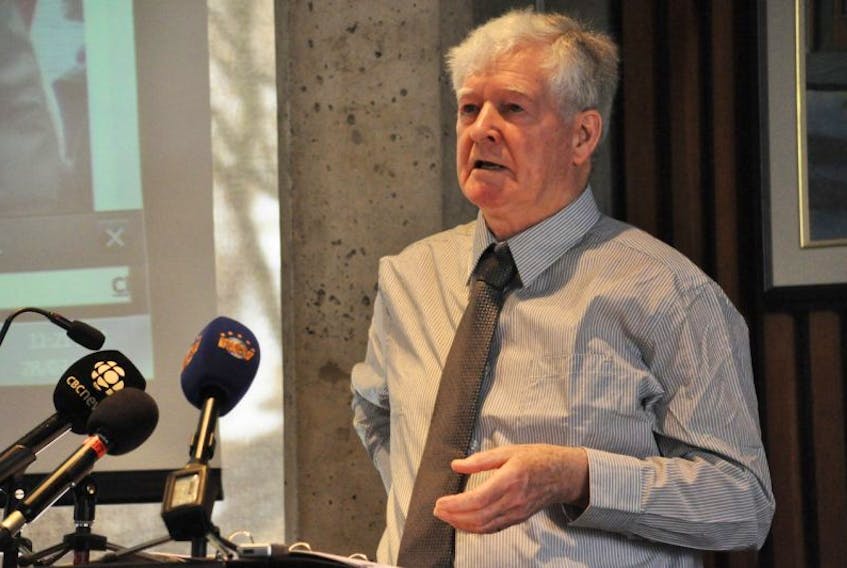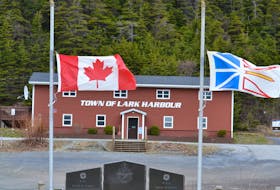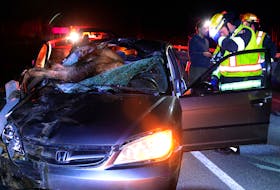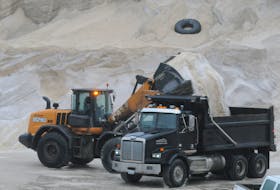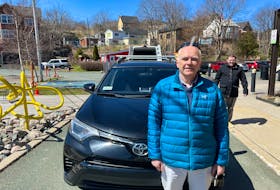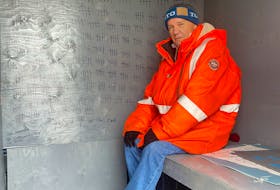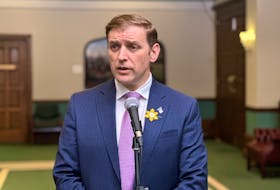The Newfoundland and Labrador Coalition for Aquaculture Reform (NL-CAR) brings together more than 20 organizations. They include environmental and conservation groups such as the Salmonid Council of Newfoundland and Labrador (SCNL) and the Atlantic Salmon Federation (ASF), First Nations groups like the Qalipu and Glenwood Mi’Kmak, as well as academics, scientists and special advisers.
Leo White, vice-president of SCNL and one of the key organizers for NL-CAR, says the group is not anti-aquaculture.
“I know the industry, and possibly government, will try to pin that label on us, but that is not the case,” White told members of the public and media gathered at a news conference to announce the coalition. “Our position is that if we’re going to have an aquaculture industry, then let’s get the best regulations we possibly can.
“We’re not about shutting down the aquaculture industry or stopping it dead in its tracks. We’re focusing on the problems that we see in the aquaculture industry and how they can be dealt with.”
That list of problems isn’t short. NL-CAR identifies a host of environmental, social and financial issues on its website, nlcar.ca. They deal with everything from fish escapement from the open-net sea pens, to the use of antibiotics and pesticides, to the lack of taxes and fees imposed on companies operating in the province.
Among the key issues is that the industry is largely self-regulating and reporting information is voluntary, without any independent oversight.
“The industry provides whatever information it wants to in terms of escapements, dealing with the treatments of pesticides, sea lice and so on,” White said. “The public really has no way of looking into that industry and getting an absolute understanding of what is actually happening because there’s no regulatory requirement for that to happen.”
Aquaculture projects in Norway and the United States, White said, are required to make each fish able to be identified as having originated from a certain farm, something he would like to see happen in this province.
NL-CAR is also urging the government to explore more environmentally sustainable alternatives such as land-based farms or closed containment pens in an effort to avoid some of the hazards to the farmed fish and the existing wild fish.
“If there’s a problem with the fish, they can be treated in a closed system. You don’t have the exposure to sea lice, which occurs naturally in the environment. You don’t have exposure to the ISA (infectious salmon anemia), which also occurs in the natural world.”
Another major problem, as NL-CAR sees it, is that too much taxpayer money is being used to support the industry. White contends that more than $42 million has been funnelled into the industry over the last few years to compensate for fish that died due to outbreaks of diseases such as infectious salmon anemia.
As a further example, White points to a large-scale project proposed by Grieg NL Seafarms Ltd. which could benefit from a $45-million equity investment from the provincial government.
“Our coalition believes that you can’t have government owning a stake in a project that they are also expected to objectively regulate, and that’s why the Grieg project got a free pass in the environmental assessment process.”
The fact that the quarter-million-dollar project in Placentia Bay, with hatchery and nursery operations in Marystown, was released from the province’s environmental assessment process was a “trigger” for the formation of NL-CAR.
“When the environmental assessment process is taken away, what else do you have?” White asked. “There’s no other public process that you can participate in to provide input and try to ensure that anything that goes ahead goes ahead in an environmentally acceptable manner. Hence the need for a very strong voice that can’t be ignored.
“We hope to be able to get the attention of government and the industry and, most importantly, to get the attention of the public.”
Later this week, an appeal by the ASF and another by St. John’s lawyer Owen Myer go before a Supreme Court judge in an effort to reverse the province’s decision to forego the environmental assessment.
[email protected]
Twitter: kennoliver79

